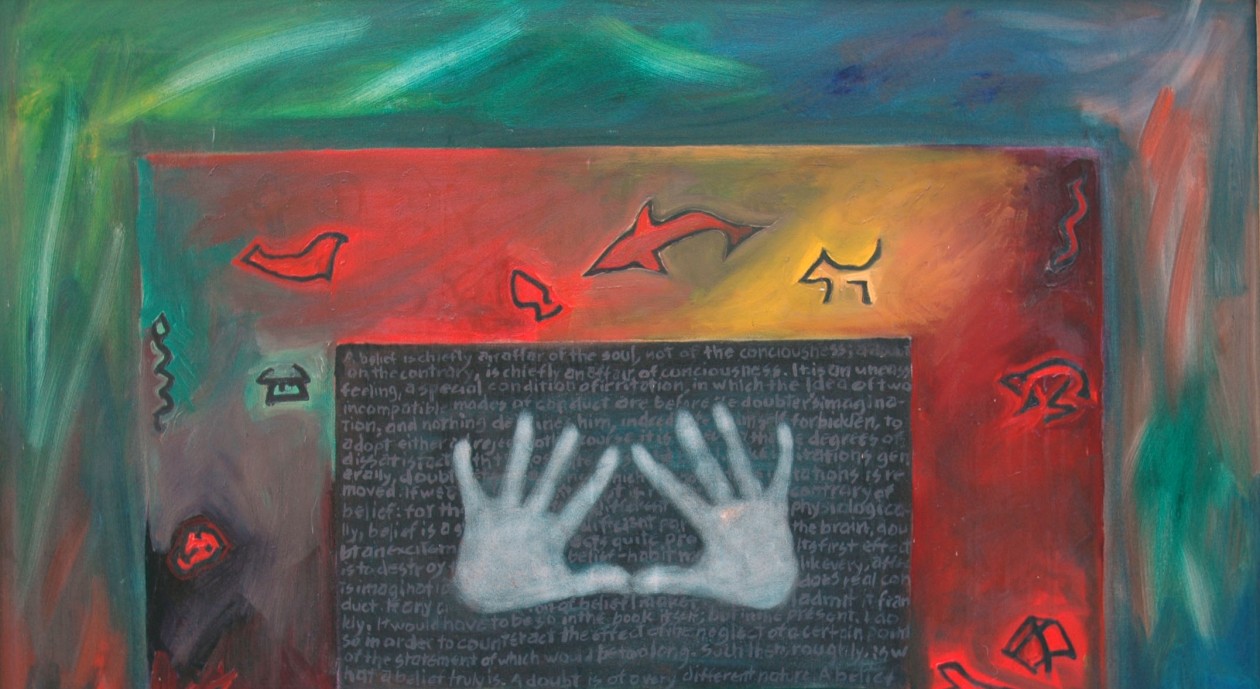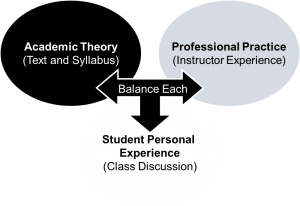This was a painting done by my Father, Robert LIfvendahl during the time I was stationed in Chu Lai, SVN (1965)
“Wise leaders demonstrate six abilities: (1) They make decisions on the basis of what is good for the organization and for society. (2) They quickly grasp the essence of a situation and fathom the nature and meaning of people, things, and events. (3) They provide contexts in which executives and employees can interact to create new meaning. (4) They employ metaphors and stories to convert their experience into tacit knowledge that others can use. (5) They exert political power to bring people together and spur them to act. (6) They use apprenticeship and mentoring to cultivate practical wisdom in others.”
What makes for a “great leader”?
Teachers teach. But in order for a teacher to teach they must have students. Leaders lead. In order to lead you must have followers. Followers follow, but only people with whom the follower has invested “trust”. Trust is earned. Through time, through reflection, through confronting adversity it is “banked” to draw upon during misfortune. Adversity thus becomes a test of trusts meaning.
I have been reading and thinking over my life about success, failure, and why so many people in the world feel adrift. We are living, as many have lived, through a period of revolutionary change. Interestingly most societies in “revolution” never fully understood that they were in revolution. The French peasant living in revolutionary France in 1789 did not fully grasp the consequences of the storming of the Bastille and its impact on their country. Neither do us in 2014; as the stability of global alliances are tested by technological and political turmoil.
Over the last three thousand years (an arbitrary number…could be much, much longer)…mankind has striven to remake the world into a comfortable abode. The problem is there is no one mankind, no perfect comfortable abode. There are many. Kingdoms, nation states and modern organizational structures are reflections of humankinds desire to control her/his world. The guides in this process have traditionally been labeled leaders. Therefore what does it mean to lead, what does it mean to be led?
“Be without fear in the face of your enemies.
Be brave and upright that God may love thee.
Speak the truth always, even if it leads to your death.
Safeguard the helpless and do no wrong – that is your oath.”
-The Knight’s Oath (Kingdom of Heaven)
“It is a kingdom of conscience, or nothing.”
[W]hat man is a man who does not make the world better[?]”
– Balian, Defender of Jerusalem
Lead
Merriam-Webster’s’ Dictionary notes that the attributes of leading all repeat the same themes…to “guide”, to “move forward”, to “take charge”, to channel aspirations of others, to be first among many, to dominate and most importantly to bring to conclusion insurmountable problems. The leader is a single human being, acting in heroic fashion, who can change the world. They can but…
Follow
The same dictionary defines following as to “come after”, to “obey”, to “seek to attain”, to “attend closely’, to “understand the logic” of one’s leader. Leaders and followers locked in a dance. Each a reflection of the other while success or failure is dependent on the complex interaction of both.
What hinders or helps leading?
Humans interact in groups. As individuals, humans are vulnerable and weak. The need to act in social groups also pre-determines that individuals of varied talent and intellectual capacities tend to naturally vie for position and influence. Leaders emerge because problems arise. Normally, only some of the group is capable of seeing solutions. Successful individual leaders are able to convince others that:
- The problem exists,
- That solutions are available…given the group’s talent and resources; and
- That she/he, the leader, if trusted, will be able to “move forward” the whole group
Resolving the issue also requires comprehension of issue complexity. Who says leading is not hard?
Reality
The human mind constructs reality. Perception (the five senses) and the acuity of those senses determine the extent to which the mind can understand the world. Perception itself is multilayered. There is that which is “concrete”, it exists in the world apart from our presence.
There is the reality of “representation”, the agreement amongst humans that a given fact is fact and that it presents a set of circumstances deserving of acceptance. An example would be a flag, any flag…it exists and represents a geographic or conceptual place populated by people.
There is the reality of “icon”, the symbolic transformation of perceptual information into a transcendent form (think religious icons of the Church). These icons articulate complex meaning but are interpreted in idiosyncratic ways. Meaning becomes individualized. One human’s icon becomes another’s idol. Reality is plastic and malleable.
Truth
The clarity of perception an individual espouses is based on the fidelity of standards used to determine it. Truth seeks universal meaning but humans manipulate it to serve their own biased ends. Leadership inherently desires to be “truthful” but the extent to which it can behave this way is context bound and historically tied to cultural norms. Therefore, truth is relative. The critical question is to what?
Power
A leader’s ability to lead is proportional to the affect she/he has on her/his followers. Management theory notes that power is derived from expertise (I know what to do), office (I am the boss), reward (I am the giver of benefits, if you want them do what I say), coercion (I punish non-obedience), charisma (I am worthy because you identify with me). Each of these power bases are implemented through a continuum of reinforcements and techniques. But power is still given by those over whom one leads. It is ephemeral and fragile.
An emerging concern about the nature of leadership is the effect personality has on leader behavior. If a leader is ethically ambivalent, uncaring about the affect their actions have on the lived lives of those who must obey them than one can ask is the leader psychopathic. The absence of concern can provide the drive to change an organization (fire all the employees of an acquired company with no hesitation for the resulting economic hardships generated by the act). To this kind of leader it’s an ethically neutral business decision. But one can argue that an ethically challenged (amoral) leader with power is also a hazard to society.
Ethics
Most people tend to confuse morality (the sense of right and wrong acquired from family, society and/or religious belief) from ethics (the academic field of knowledge that seeks to understand why any given society ascribes to the “rightness” of any given belief). In business, ethics tends to be seen in terms of litigation avoidance. Organizational behavior and leadership action should be guided solely by a concern to do what is “right”. The evaluation of efficacy of that behavior must record a desire to purge litigation avoidance from the decision making process.
Learning
Learning is the acquisition of knowledge; the conversion of reality into a mental domain that provides context for living. The dialogue of learning is complex…an interaction between personal experience (one’s lived life), professional expertise (work accumulated understanding), and formal education (explanatory theory tested by scientific practice).
The glue that holds this together is critical analysis (the need to test fixed belief against unvarnished fact).
Modernity
As humans have lived in ever increasingly large aggregations, the consequences of movement from tribal village to regional metropolis created social conditions unanticipated by past slow change. In essence, modern humans are cave dwellers living in stacked condominiums. As a result of this condition, humans seek to create a vision of reality that is becoming increasingly difficult to support. A dysfunctional symptom of this situation is that technological advancement tends to force us to act instantly to a cascade of information that heretofore would have taken months to reach us. Instant reality, instantly understood. Modern life becomes a chimera because there is little time to reflect on meaning before the next problem grabs our attention.
Culture
By acting in groups and seeking mutual support humans create “moral facilities”, intellectual capacities, and “shared values, conventions and social practices”. (Webster’s’) These practices are diverse, geographically bound and of varied levels of technological and intellectual sophistication. The success or failure of any culture is dependent on its accumulated academic, economic, political and social heritage. More importantly the success of human cultures is directly related to the stability that each culture exists in.
Politics
The concept of a unified nation state is only four hundred years old. It was the creation of a manifest desire to end constant warfare in Europe over religious and political issues (The Peace of Westphalia of 1648 ending the Thirty Years War, 1618-1648). But nations are also human creations; geographically, culturally, economically, and militarily bound by a collectively perceived need to exist. Contemporary national aspirations are still played out using a variety of political methods…some violent. The nation state is still an evolving concept.
Politics is the allocation of limited resources to meet unlimited collective demand. Political institutions have progressed from King and Court to representative democracy. The constant theme has been power migration, from one elite group to another.
Complex in both form and substance, the political act in modern society has been diminished by the compressed nature of contemporary life. Resource apportionment and the time required to allocate it are in increasingly short supply. Instant problems, shallowly understood by constantly changing politicians driven by demands of ill-informed populations create hastily formed solutions. Manipulating this process are media sources obsessed by nanosecond news cycles. This newly emerged phenomenon creates an unsustainable environment for planning long term success.
Stability
Humans seek stability and predictability in their lives. A predictable world is a planned world. For thousands of year’s natural cycles of life (birth, death, yearly planting and harvest) and enduring relationships between family, King and God created a seemingly stable world. Modernity…the ever evolving relationships humans have with their tools (both physical and intellectual)…has made maintaining a stable world increasingly challenging.
Change
Humans change…themselves, their world and the varied conditions they live in. Change is our abiding constant. Overtime nothing remains the same. Humans tend to hate change. The problem is modern change is increasingly complex and unpredictable. We live in ever enlarging communities composed of diverse people. Historically, communities tended to be populated by like-minded people. They still are. But now they live butt up against each other. The more complex change becomes the more humans desire to control. Control is a planned process.
Planning
Planning change is an act of faith. It assumes that we know what the “problem” is, that we know what the end state is that we wish to achieve, and that we have the capacity to follow the plan sufficiently long enough to achieve it. In a world where time moved slowly and communication between people took months cathedrals could be built.
Modernity has increasingly compressed time but the institutions that plan successful change still have to deal with cultural norms formed long ago. Cave people with “smart phones” texting random thoughts that would never have seen the light of day even fifty years ago. Planning is a complex art form dependent on introspection and reflection. We seek to plan change when change seems to plan for us.
Context
Leaders, leading, and leadership are all context bound. The style of leadership required for business ventures is different than for military success. Cultural norms, religious requirements, value conformance and other complex behaviors all drive the extent to which leaders can lead. Generally, one can articulate similarities and differences between contexts but all require uniquely tailored conditions for success.
One must be able to have room to think. What are the consequences of action or non-action? What affect does this have on that? Who benefits, who loses, and who does not care? What can be done now, in six months, in five years, or never achieved no matter how hard we try?
Outcome
A condition or state of mind achieved after effort. I believe that change is best actualized when the belief of the changed individual at the end of the process is clearly stated and formally articulated. Unless one can describe how a person accepts as true the effect on her/his self of a program outcome, it becomes difficult for one to lead another to a “changed” state of being.
What should we be concerned with?
If leadership is an evolving practice, if global society is in an on-going state of change and if the very existence of the nation state is in jeopardy than leaders and those they lead must act. The world is faced with global problems. National boundaries have become increasingly porous and hard to control. Human society, in all its varied contexts and locales is now systemically interconnected at an inconceivable level. Global trade and transportation have made parochial isolation of interests a dangerous luxury (take Ebola migration as an obvious example). Climates change and humans are displaced. What must we do?
Nurture Competence
Recently author Aaron David Miller in his book, the “The End of Greatness: Why America Can’t Have (and Doesn’t Want) Another Great President”, notes that we need to nurture leaders who are not necessarily “great” but who are competent. I agree with his thesis. In American history three Presidents are oft cited as great…George Washington, Abraham Lincoln, and Franklin Delano Roosevelt. Each faced an existential crisis, each was supported by both a willing and compatible Congressional majority, and each was able to galvanize their population to action. But if “greatness” requires an existential crisis then maybe greatness should be avoided.
I have described leadership as a complex evolving practice requiring diverse and sophisticated personal skills. Generally these leadership skills are well understood. Curious by nature, reflective in practice, clear in communication, open minded to alternative thinking, and empathetic to others needs modern leaders exist. Society needs to consider how to best to nurture and support their efforts.
Therefore, fostering leadership requires we evaluate and support institutions that:
- Create conditions (place and space) for planning and reflection.
- Diminish the effect of “noise”…distractions caused by time and condition constraints.
- Encourage analysis on the intentional and unintended effects of decision making (both short and long term).
- Provide intellectual “safety zones” to innovate (creative thinking is best fostered when people can openly say what they think and test that thinking in critical ways that uncover unexamined issues).
- Leverage fully the power of technology to help leaders understand the complexity of their decision making.
Given my professional and personal biases, this is the combined role of higher education and the University classroom instructor.
Summary
The conditions we live in on Planet Earth are changing, global in context, and represent an existential set of challenges that cannot be ignored. Leaders and the populations they lead must meet these challenges head on. Avoidance is no longer a luxury.


